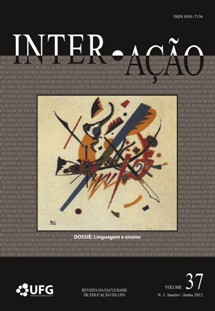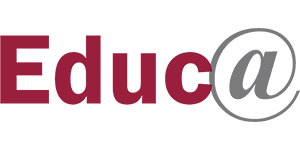ABOUT LETTERS: LANGUAGE, TEACHING AND SUBJECTIVITY
DOI:
https://doi.org/10.5216/ia.v37i1.18862Abstract
This article is a continuation of an investigation, a follow up on previous research around the theme of language, psychoanalysis and education, about what is at stake when one proposes to consider a child’s first attempts at language. Considering more specifically the process of school literacy, I will try to discuss the function of text as well as the desiring game that its materiality could constitute, which approaches the unconscious process in which subjectivity can be situated. Firstly, I will consider certain issues, introduced by Borges (2006), on the literacy process and the role of text. Secondly, I will treat the implications of the fundamental concepts of psychoanalysis, in order to discuss the question of subjectivity. Finally, I will take the three irreducibly intertwined items of the title, language, teaching and subjectivity, which will allow me to discuss the three main elements involved in the educational process – child, teacher and text.Downloads
Downloads
Published
How to Cite
Issue
Section
License
Inter-Ação uses the Creative Commons Attribution 4.0 License for Open Access Journals (Open Archives Initiative - OAI) as the basis for the transfer of rights. Open access means making documents available on the Internet free of charge, so that users can read, download, copy, distribute, print, search, or link to the full text of documents, process them for indexing, use them as input data for software programs, or use them for any other lawful purpose, without financial, legal, or technical barriers.
Authors publishing in this journal agree to the following conditions:
1) Authors retain copyright and grant the journal the right of first publication, with the work simultaneously licensed under the Creative Commons Attribution License, which permits redistribution of the work with attribution and first publication in this journal.
2) Authors are permitted to enter into additional, separate agreements for non-exclusive distribution of the version of the work published in this journal (e.g., for publication in an institutional repository or as a book chapter), with attribution and first publication in this journal.
3) Authors are permitted and encouraged to publish and distribute their work online (e.g. in institutional repositories or on their home page) at any time before or during the editorial process, as this may generate productive changes as well as increase the impact and citation of the published work.
















